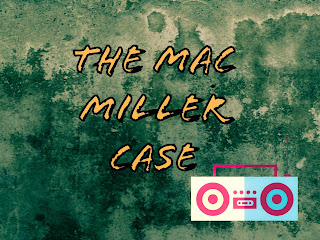Deviant Juveniles: The Victims of Politically Correct Speech, Desired Professionalism, and the American Dream
Every day adults wake up
and go to law enforcement agencies that specialize in juvenile justice
procedures. Social service people,
police officers, prosecutors, judges, and correctional staff “earn” a salary
from placing a juvenile into the system and, at times, subtlety infer that they
are doing what is expected of them even if they do not agree with the
practices. This is the excuse that you
can find throughout every jurisdiction in the United States regardless of the
offense that a juvenile has been arrested for or convicted of. Politically correct talk appears to be one of
the reasons why the archaic practices in the system still exist and no
significant reformations are made that would end the arresting and detaining of
juveniles in this country. Poor children
are especially affected by this politically correct-common talk and the results
of the legal intervention mostly turns into conversations about how bad of a
life a child had when they become an adult and stand before a sentencing
judge.
With this being done
over-and-over again, one would think that there would be a change in the
processes so that juvenile offenders are not just part of a conversation or few
remarks made by someone who does not want to be viewed as a jailer for
children. But no, the miscarriages of
juvenile justice continue and the practitioners all seem to use these forms of
placation – the politically correct-common talk – when anyone asks them about
how they can do their jobs and still feel important or serving the public. Questions obviously arise about the integrity
and human decency when such actions take place.
Police officers arresting a child and putting handcuffs on them, taking
them to be booked, prosecutors building a case on kids and gunning for a
conviction and extended placement in the system, judges sentencing children
because it is the law, and correctional staff locking juveniles in buildings
for long periods of time is something that is, simply put, wrong when applied
to how human beings should be behaving while dealing with children. Desired professionalism and capitalism are the
reasons these legal practitioners are subjugated and “just do their jobs.” It is acceptable for them to disenfranchise
poor kids so that they can take care of themselves and, in many cases, support
their children in other words.
So, this politically correct-common
talk is what is used when self-consciousness arises, yet these guilty thoughts
are somehow not intertwined with our societal perspective of juvenile
justice. That is, and as previously
mentioned, because they are just doing their jobs. This author believes that the guiltiness that
is briefly remarked on during these politically correct spews should be the
justice system for kids. Government for
the people, by the people, and of the people includes how all of these people
think. If people who work in the system
do not condone the practices and have support from many others when disdain is
presented, then why do we not change the system to match our thoughts in this
politically correct tongue? Again, reputations
and salaries are the real reasons this change does not come about and the
practitioners revert to politically correct statements to hide their shame that
they have about themselves for doing their jobs. Or they have become used to telling people
what they want to hear – which is even worse than turning to politically
correct statements about unwanted legal practices in the United States.


Comments
Post a Comment